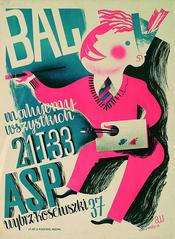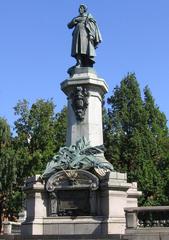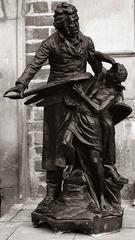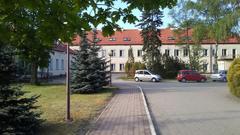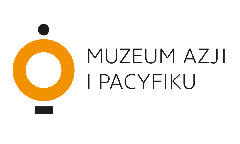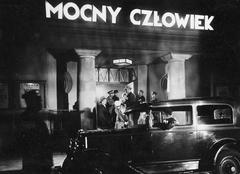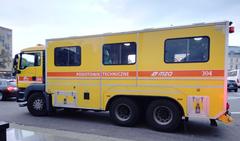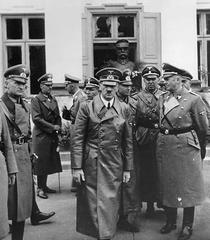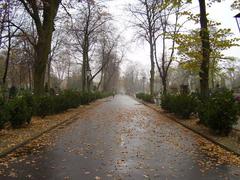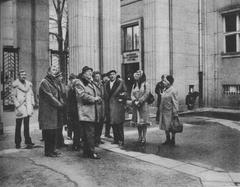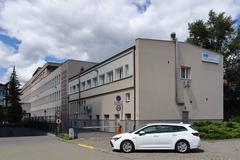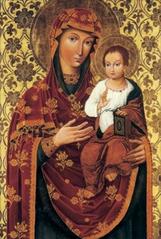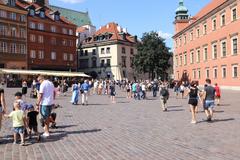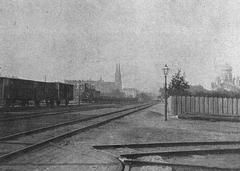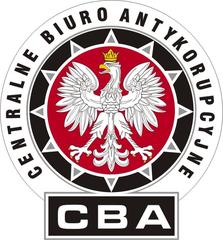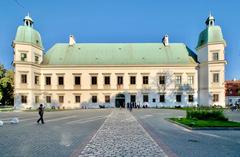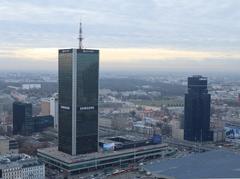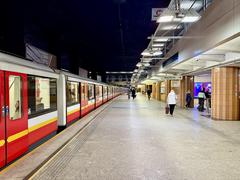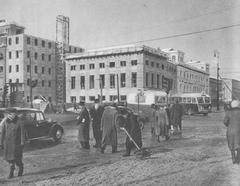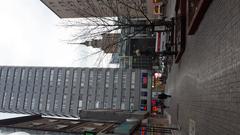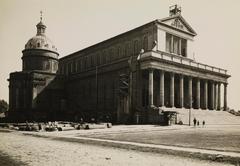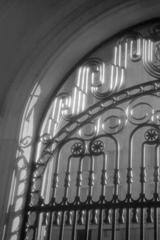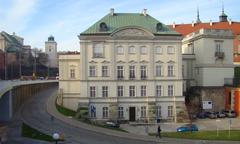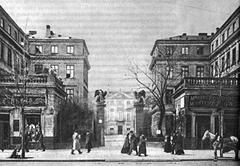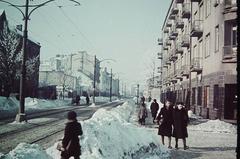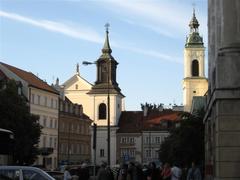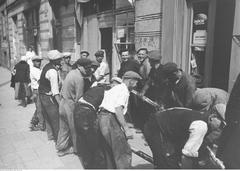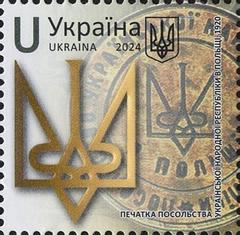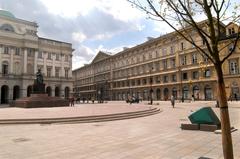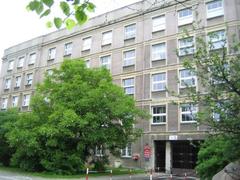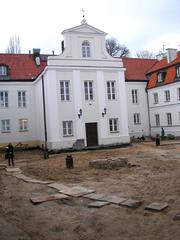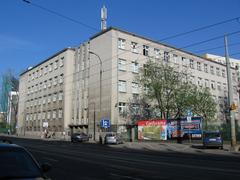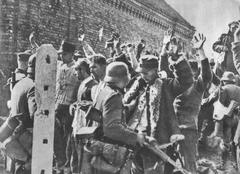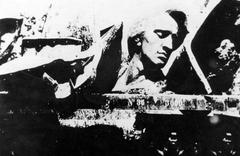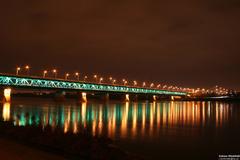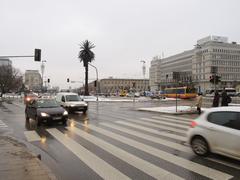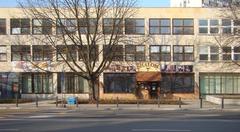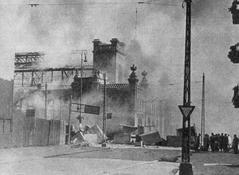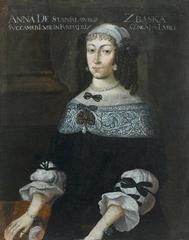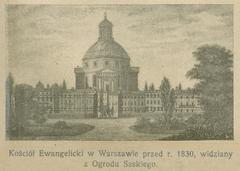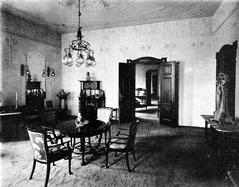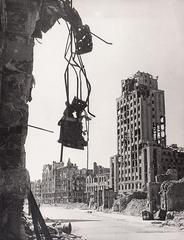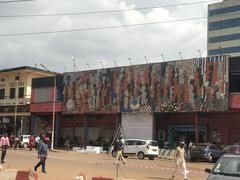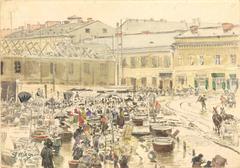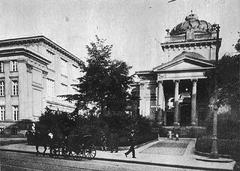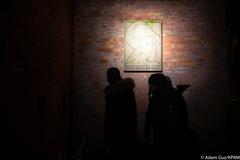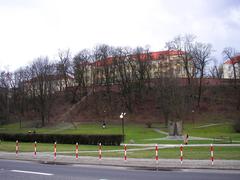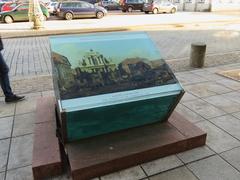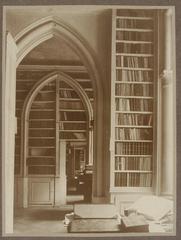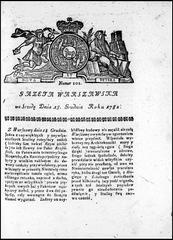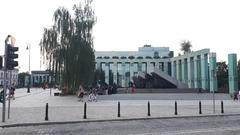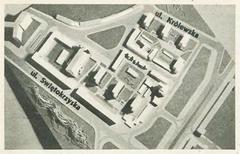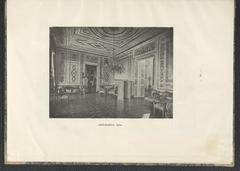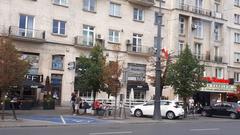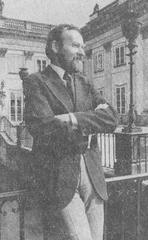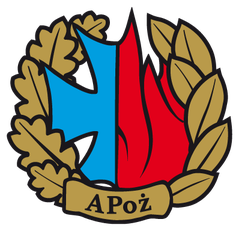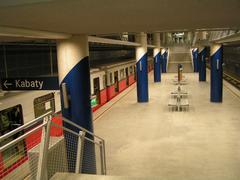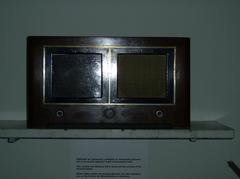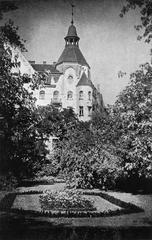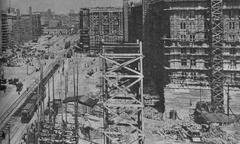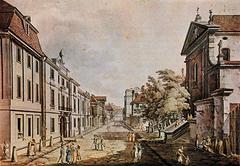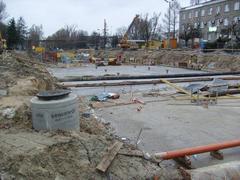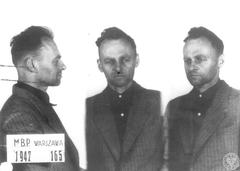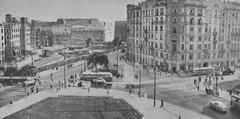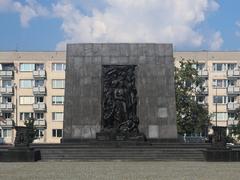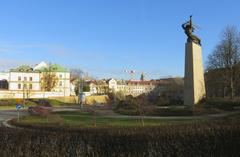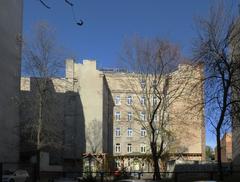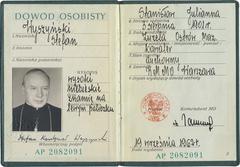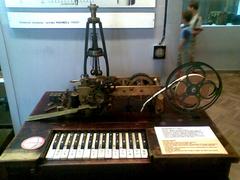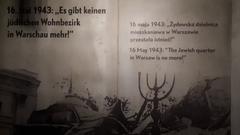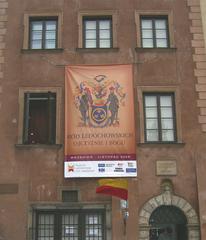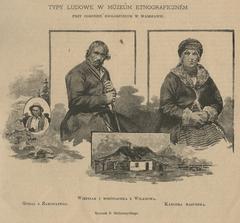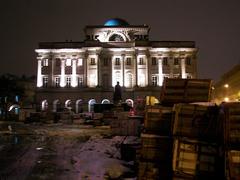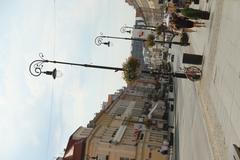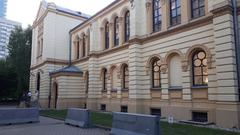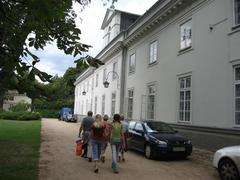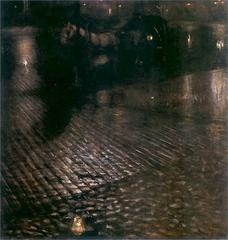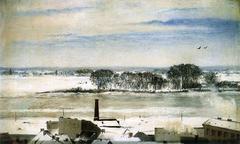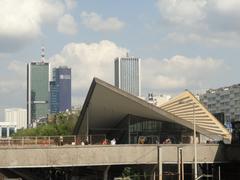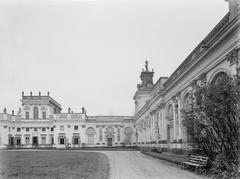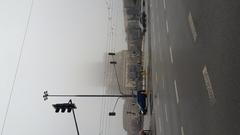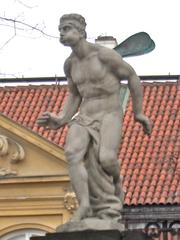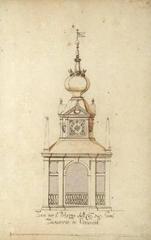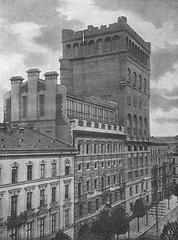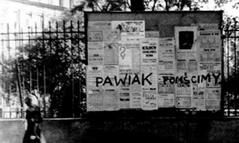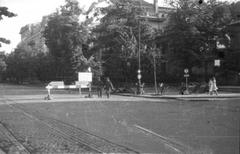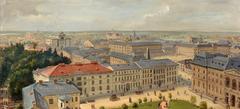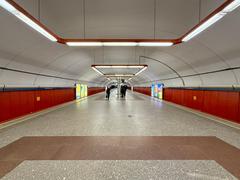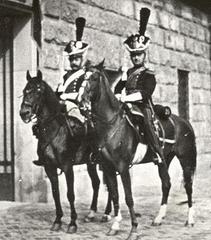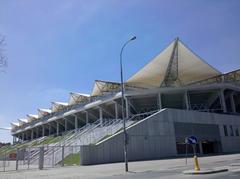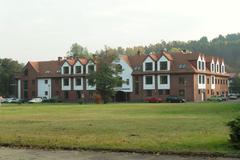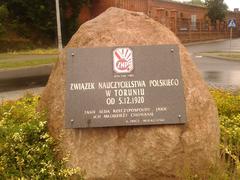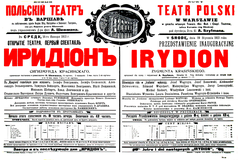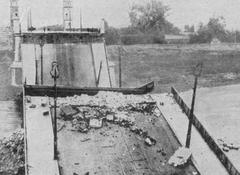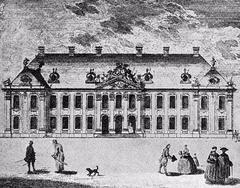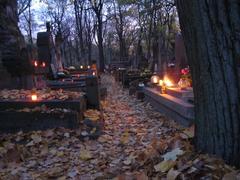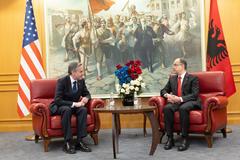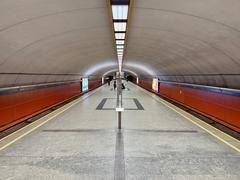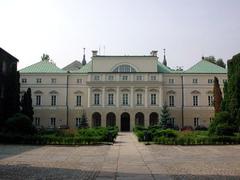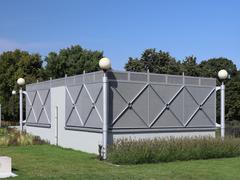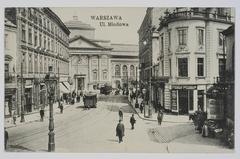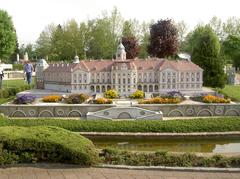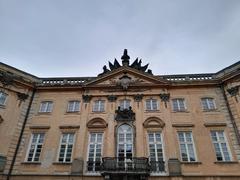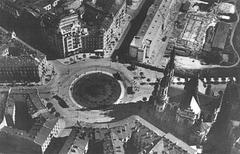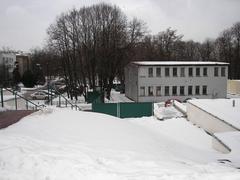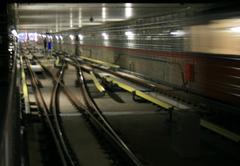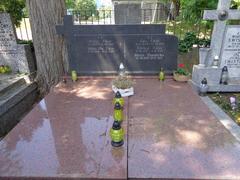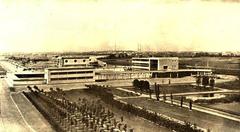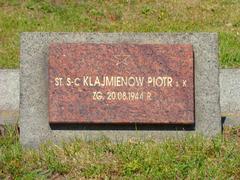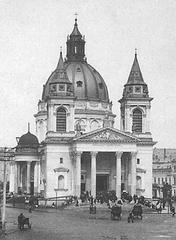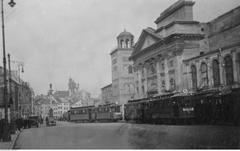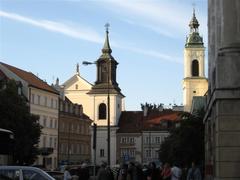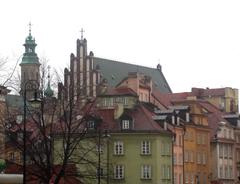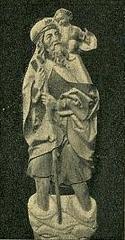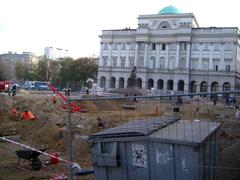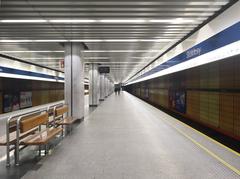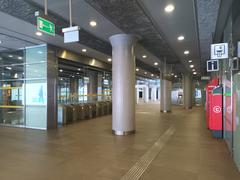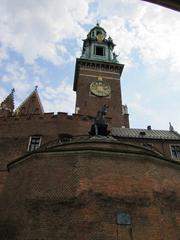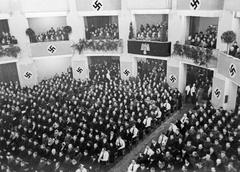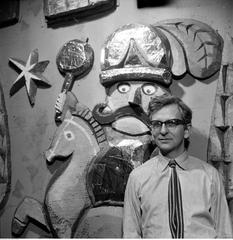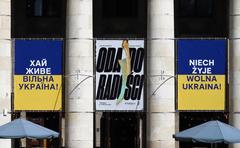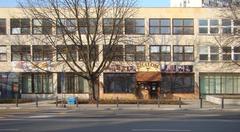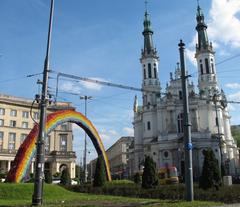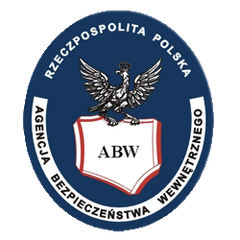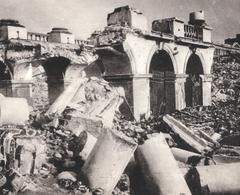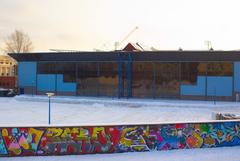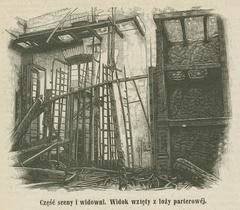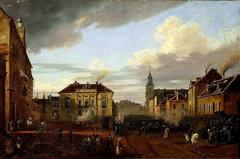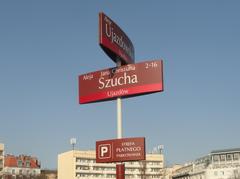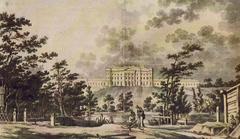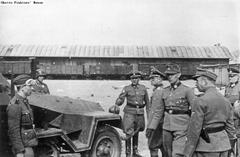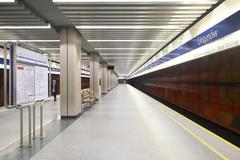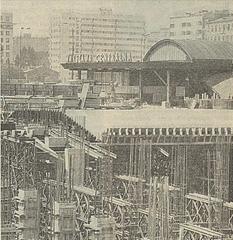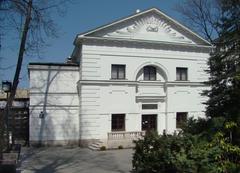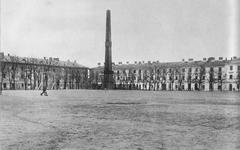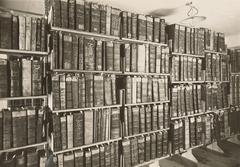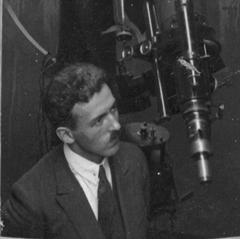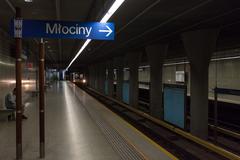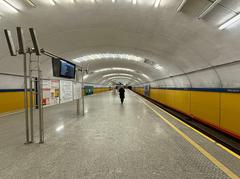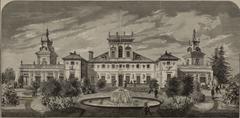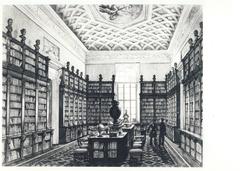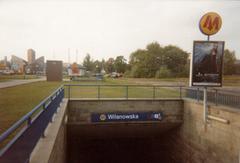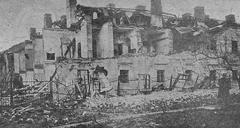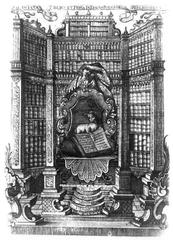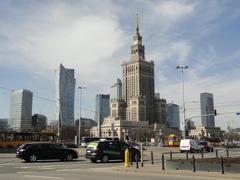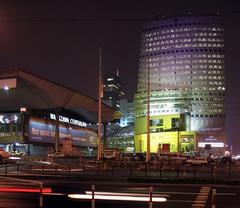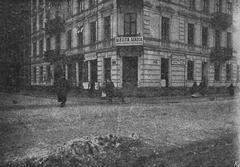Karta Center Warsaw: Visiting Hours, Tickets, and Comprehensive Tourist Guide
Date: 03/07/2025
Introduction: Exploring the Karta Center in Warsaw
Located in the heart of Warsaw, the Karta Center (Ośrodek KARTA) is a leading institution dedicated to preserving, researching, and presenting the complex history of Poland and Eastern Europe throughout the 20th century. Established over 40 years ago, Karta has grown into one of Poland’s foremost non-governmental organizations, renowned for its extensive archives, personal narratives, and educational outreach. The Center, situated at 29 Narbutta Street, provides an immersive experience with exhibitions highlighting themes such as totalitarianism, resistance movements, and everyday life under oppressive regimes.
The Karta Center is closely linked to the History Meeting House (Dom Spotkań z Historią), a neighboring cultural institution that further enriches the visitor experience through interactive exhibitions and multimedia presentations. Both centers are committed to accessibility, education, and fostering international dialogue, serving as dynamic hubs for tourists, researchers, and locals interested in Warsaw’s—and Central and Eastern Europe’s—historical legacy.
Karta Center offers visitors free admission, guided tours in Polish and English, and regularly updated exhibitions reflecting ongoing research. Its digital resources, including virtual archives and online exhibitions, make it an invaluable resource for both local and international audiences. Conveniently located near public transport and major Warsaw attractions like the Warsaw Uprising Museum and Łazienki Park, the Karta Center is an essential destination for anyone interested in exploring Warsaw’s rich historical tapestry (Karta Center Official Website, History Meeting House Guide, Polish News Coverage).
Table of Contents
- Discover the Karta Center: A Must-Visit Historical Site in Warsaw
- The History Meeting House: Hours, Tickets, Exhibitions, and Visitor Guide
- Karta Center Exhibitions, Archives, and Visitor Guide
- Karta Center’s Role in Warsaw’s Cultural Landscape
- Summary and Final Tips
Discover the Karta Center: A Must-Visit Historical Site in Warsaw
Opening Hours and Tickets
- Hours: Tuesday–Friday, 10:00 AM–6:00 PM; Saturday, 10:00 AM–4:00 PM; closed Sundays and Mondays.
- Admission: Free entry to all permanent exhibitions. Special events or temporary exhibitions may require a ticket (typically 10–20 PLN).
- Guided Tours: Available in Polish and English by advance booking. Tours provide in-depth insights and are ideal for individuals or groups.
Accessibility Information
- Wheelchair accessible with ramps, elevators, and accessible restrooms.
- Staff can provide assistance; visitors with special needs are encouraged to contact the Center in advance.
How to Get There: Travel Tips
- Public Transport: Easily accessible by bus (lines 116, 180, 185) and metro (Pole Mokotowskie, Line M1).
- Car: Limited street parking nearby; public transport is recommended for convenience.
Nearby Attractions
- History Meeting House (Dom Spotkań z Historią): 20 Karowa Street; offers additional exhibitions and events.
- Łazienki Park: A scenic park with palaces and gardens, a short walk away.
- Warsaw Uprising Museum: A must-visit for those interested in WWII history.
Exhibitions and Educational Programs
- Permanent Exhibitions: Explore themes like totalitarianism, resistance, and everyday life in 20th-century Poland.
- Temporary Exhibitions: Rotating displays on topics such as the Solidarity movement, oral histories, and women in resistance.
- Educational Initiatives: Includes workshops, lectures, competitions, and school programs designed to foster critical engagement with history.
Visual and Multimedia Resources
- Access digital exhibitions, virtual tours, and extensive archives on the Karta Center website.
- High-quality images and multimedia presentations provide deeper context.
Frequently Asked Questions (FAQ)
Q: What are the Center’s opening hours?
A: Tuesday–Friday, 10:00 AM–6:00 PM; Saturday, 10:00 AM–4:00 PM.
Q: Is admission free?
A: Yes, for permanent exhibitions. Some events may require a fee.
Q: Are guided tours available?
A: Yes, in Polish and English by advance booking.
Q: Is the Center accessible for wheelchair users?
A: Yes.
Q: How do I reach the Center by public transport?
A: Use bus lines 116, 180, 185, or metro line M1 (Pole Mokotowskie).
Contact Information
- Address: ul. Narbutta 29, 02-536 Warsaw, Poland
- Phone: +48-22-8480712
- Email: [email protected]
- Website: https://www.karta.org.pl/
Notable Projects and International Cooperation
Karta collaborates internationally, notably with organizations such as Memorial (Russia, Ukraine), and participates in EU-funded projects on WWII forced labor, totalitarianism, and historical reconciliation.
The History Meeting House: Hours, Tickets, Exhibitions, and Visitor Guide
Introduction
The History Meeting House (Dom Spotkań z Historią), established by the Karta Center Foundation, is a unique space focused on personal narratives and multimedia explorations of 20th-century Polish and Central European history.
Visiting Information
- Address: Karowa 20, Warsaw
- Hours: Tuesday–Friday, 10:00 AM–8:00 PM; Saturday–Sunday, 11:00 AM–8:00 PM; closed Mondays.
- Admission: Free to all exhibitions and events.
- Facilities: Full accessibility, bookstore, café, and reading room.
Exhibitions and Highlights
- Permanent Exhibition: “Faces of Totalitarianism”—exploring individual and societal experiences under totalitarian regimes.
- Other Exhibitions: Rotating displays on topics such as the Warsaw Uprising and Poland’s eastern borderlands.
- Oral History Archive (AHM): Access to Poland’s largest collection of oral history testimonies.
- Special Programs: Public events, film screenings, book launches, and educational workshops.
Visitor Experience
- Plan for 1.5–2 hours to explore.
- Check the official website for current exhibitions and events.
- Educational programs are available for all ages.
Karta Center Exhibitions, Archives, and Visitor Guide
Permanent and Temporary Exhibitions
Permanent Exhibitions:
- “Faces of Totalitarianism” (at both Karta Center and History Meeting House)
- “The Polish Underground State”
- “Everyday Life in the People’s Republic of Poland”
Temporary Exhibitions:
- “Solidarity: The Power of Community”
- “Witnesses of History: Oral Testimonies from 1939–1989”
- “Women in Resistance”
Archival Collections and Research
- Over 1.5 million documents, 300,000 photographs, and extensive audio/video testimonies.
- Personal diaries, underground press, oral histories, and more.
- Research facilities and reading room with staff assistance and digital access (Karta Digital Archive).
Educational Programs and Public Events
- Hands-on workshops, lectures, panel discussions, and commemorative events.
- Documentary screenings and book launches.
- Annual events tied to historic anniversaries.
Visitor Information and Practical Tips
- Audio guides in multiple languages.
- Gift shop and complimentary Wi-Fi.
- Most materials available in English; staff support for international guests.
- COVID-19 guidelines in place as per the latest regulations.
Digital Resources and Online Engagement
- Virtual exhibitions, searchable archives, and downloadable educational materials.
- Follow Karta on social media for updates and subscribe to the newsletter.
Karta Center’s Role in Warsaw’s Cultural Landscape
Historical and Cultural Significance
The Karta Center’s grassroots approach, focusing on private collections and personal narratives, provides a vital perspective on Poland’s 20th-century history. Its work complements major museums and contributes to Warsaw’s reputation as a city of memory and resilience (polishnews.co.uk, destinationabroad.co.uk).
Educational Outreach and Public Engagement
Karta is recognized for its robust educational programming, collaboration with schools and universities, and commitment to digital accessibility. Teachers, students, and researchers benefit from curated resources and expert guidance.
Social and Civic Impact
Through dialogue, volunteerism, and participatory projects, Karta fosters community engagement and supports reconciliation around challenging historical topics.
Tourism and International Perception
The Center draws visitors seeking authentic historical experiences and supports Warsaw’s standing as a cultural tourism destination. Its digitized archives are used by international researchers and institutions.
Awards and Recognition
Karta has received significant grants, such as Warsaw’s “Cultural Heritage” program’s largest award in 2024, and is widely recognized for its excellence in documentation, education, and public engagement.
Visitor Experience: Practical Details
- Best time to visit: Weekdays for fewer crowds.
- Recommended duration: 1–2 hours for exhibitions; more for archives or special events.
- Combine your visit with nearby sites like the Warsaw Uprising Museum and Łazienki Park for a full historical experience.
Summary and Final Tips
The Karta Center offers an unparalleled journey into Poland’s 20th-century history through vast archives, compelling exhibitions, and educational programs. With free admission, accessible facilities, and engaging digital resources, it caters to all visitors—from tourists to serious researchers. Its partnerships and dynamic programming ensure that the stories of Warsaw’s past remain accessible and relevant.
Tips for Your Visit:
- Check the official website for current hours, exhibitions, and special events.
- Book guided tours in advance for a deeper experience.
- Explore digital resources and online exhibitions if you cannot visit in person.
- Support the Center’s mission through donations or by purchasing from the gift shop.
References
- Karta Center Official Website
- History Meeting House Guide
- Polish News Coverage
- Karta Digital Archive
Embark on a meaningful exploration of Polish history where personal stories and national narratives converge, and experience firsthand why the Karta Center is an essential destination for understanding Warsaw’s—and Europe’s—historical heritage.
